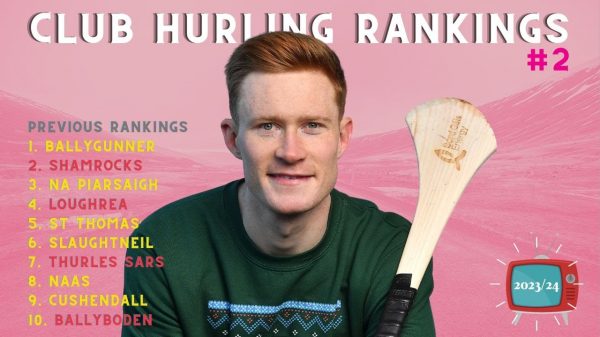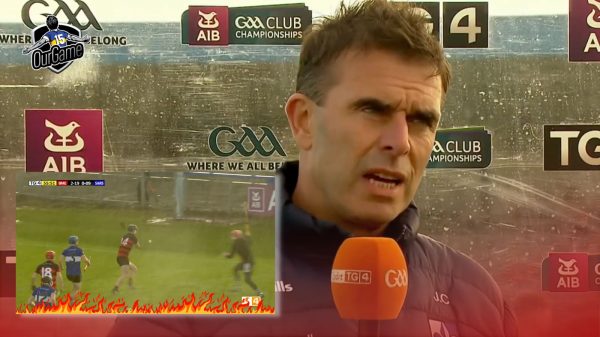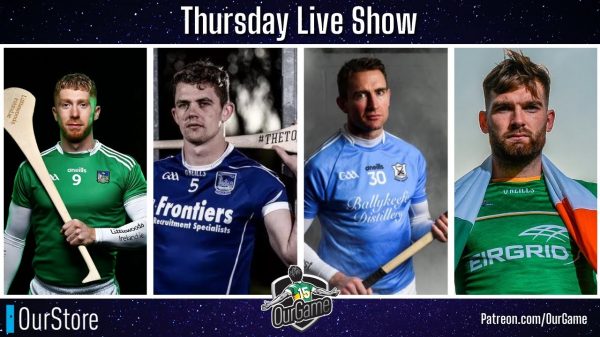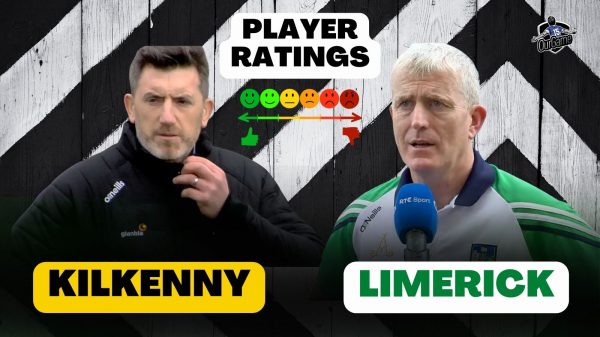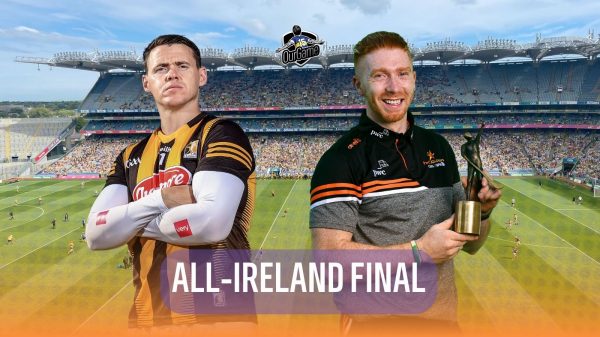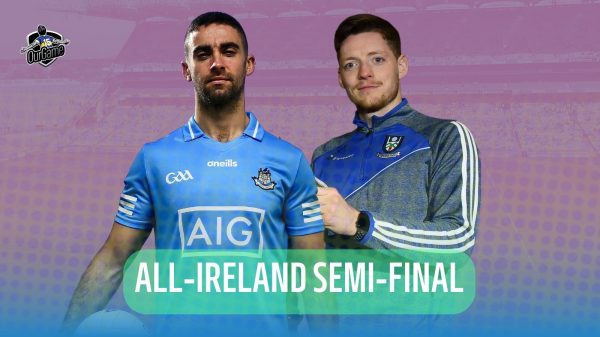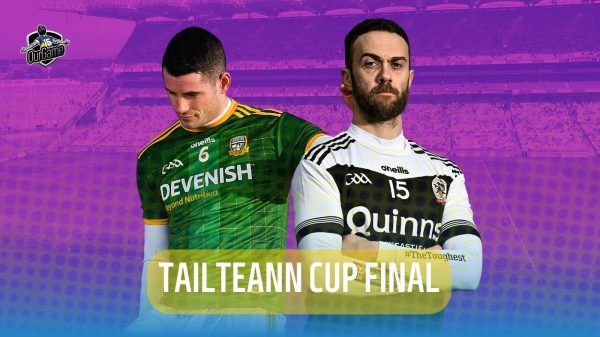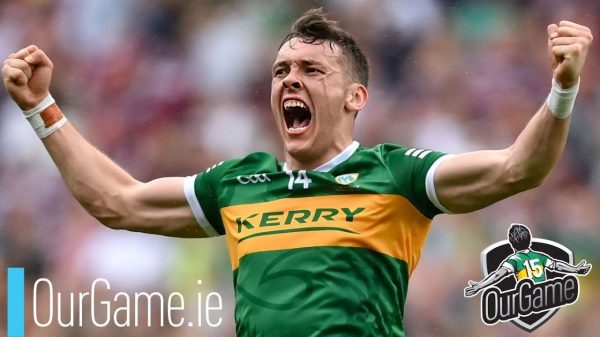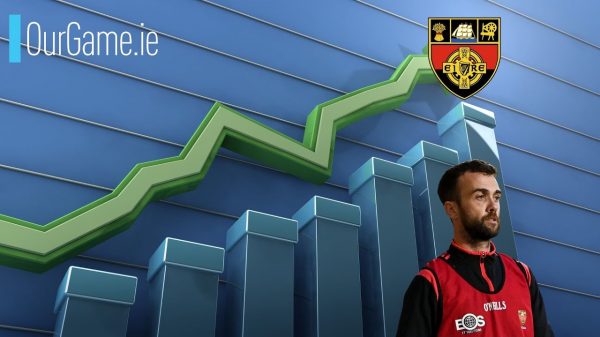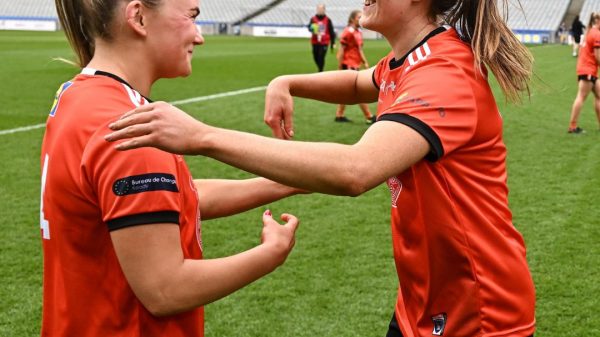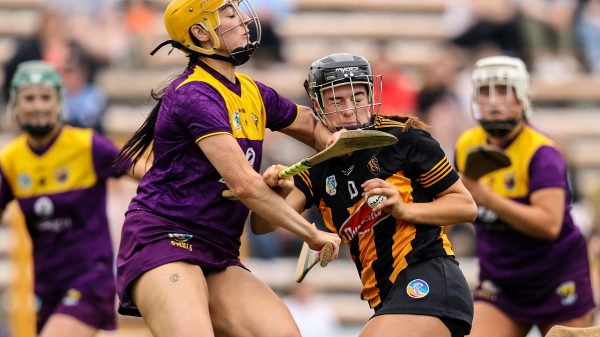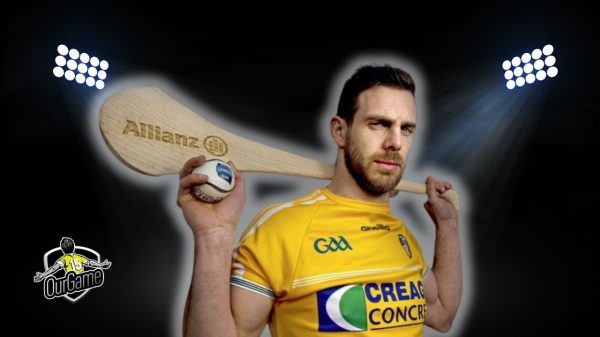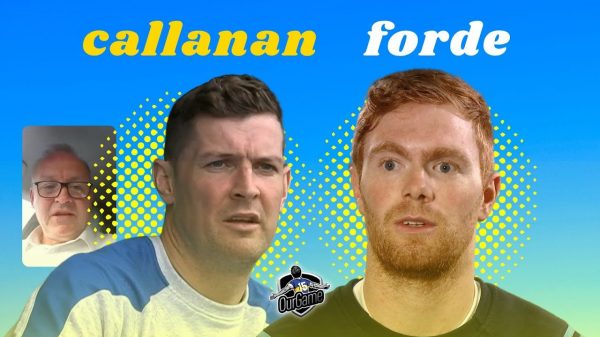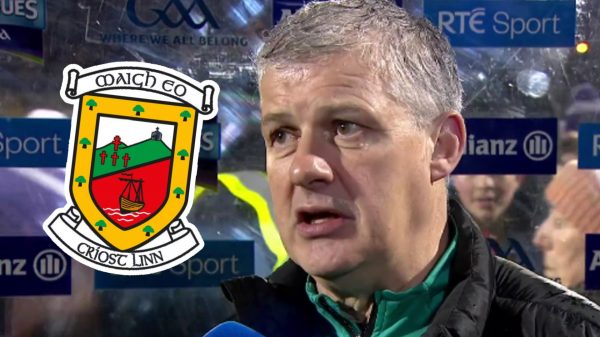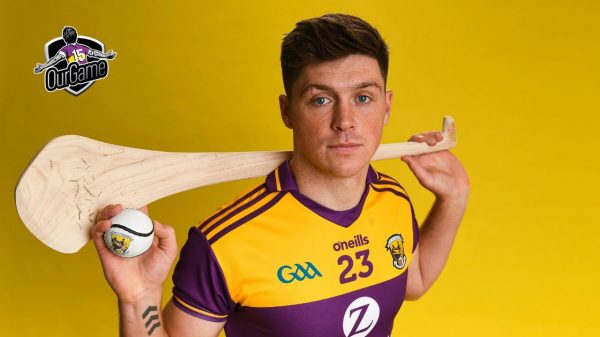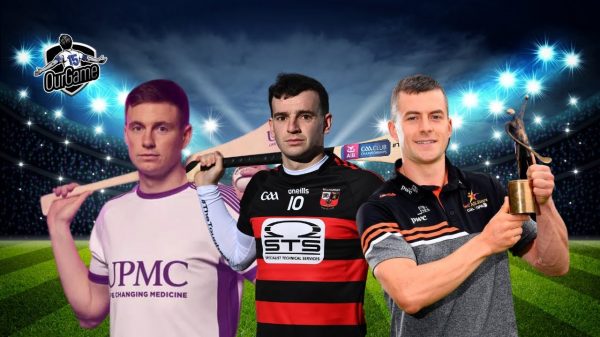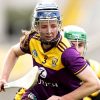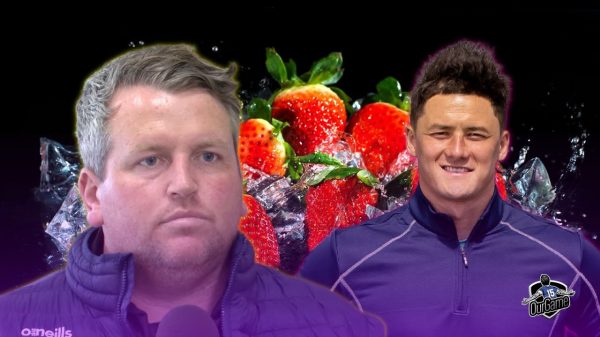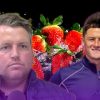In this exclusive extract from his autobiography ‘A Land of Men and Giants’, Wexford legend Tony Doran reflects on the 1968 All-Ireland hurling final with Tipperary and offers a unique insight into the GAA at a different place and time to the order and fussiness of today.
‘It was a whole new experience as far as I was concerned anyhow, playing in a senior All-Ireland final. We were playing Tipperary, a legendary team… and Tipp were hot favourites going into it.
‘Everyone fancied them and even though we had beaten Kilkenny in the Leinster final we were not expected to do too much… and that showed in the first-half, I suppose, when they built up their big lead.
‘We were still in cars heading up to Dublin… we never travelled any other way to Croke Park, only in cars. Wexford were in the senior and minor finals that day, so… we went with Pat Laffan, a local hackney car at the time. He was driving usually the Buffers Alley and Oulart players and he’d normally drive us all as we were side-by-side as parishes… pick us up at our houses.
‘He was a fella who drove slowly… he was never a fast man, and we’d get onto him to hurry up. In that time, if you were doing 50 miles an hour you were driving fast. All the lads would get onto him and tell him to get a heavier sole on his shoe.’
The Doran family also owned a milk lorry at the time.
Cans of milk were collected from local farms and brought to the creamery in Ballycanew. The milk round covered approximately 15 miles … and cans were normally 10 gallons in size, so when full there was quite a lot of manual work involved.
Joe Doran had made the round with a tractor and trailer to begin with in the mid 60s, but they graduated to a lorry fairly quickly. But in summertime when the milk was more plentiful, it was sometimes necessary to build a deck on the lorry so that extra cans could be taken. It slowed up the whole operation, and mornings with an extra deck meant more chatting with neighbours, which was fine normally, but on the week of an All-Ireland final there could be too much talk about the match.
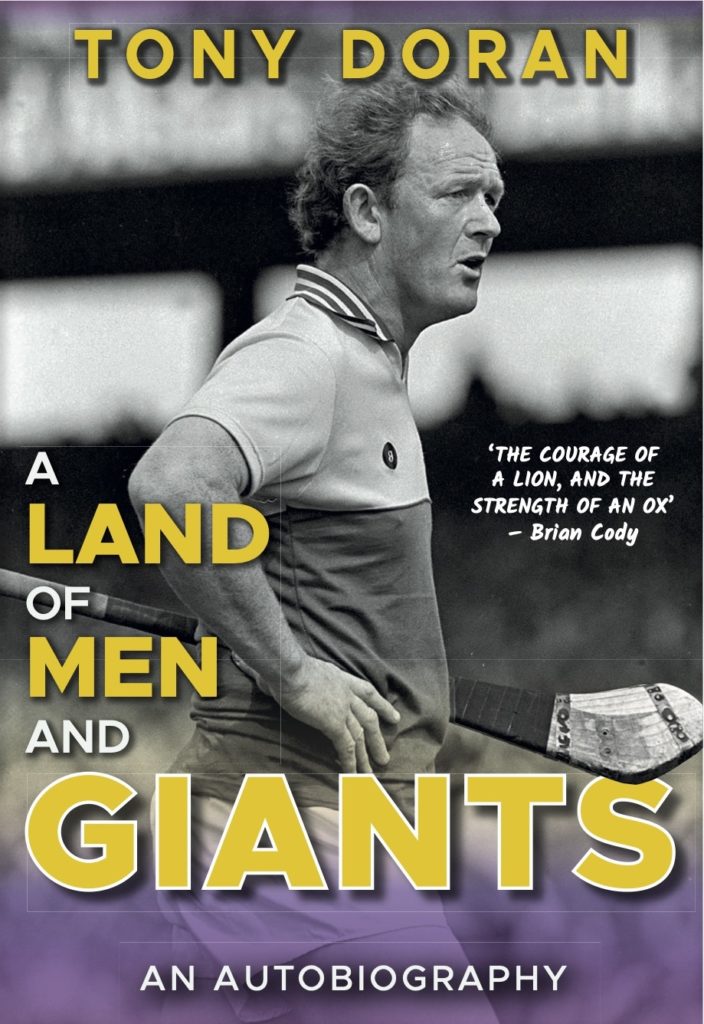
Everyone only wished him the best, but there was only so much time Tony could give to thinking about the biggest match of his young life.
There were up to 25 farms to be visited… and he liked to be in Ballycanew most mornings by ten o’clock.
‘Some of the other lads would usually start off the collection and I would take over when the lorry was passing by our home place and complete the collecting, and then travel to the creamery. On arrival you’d have to wait your turn to be unloaded… for the cans to be taken off, left on the platform and then emptied into a scales for weighing.
‘Everyone’s individual cans… then get them back into the lorry. It’d be early to mid-afternoon before it would be all done, and the same every day… seven days a week. That was one of my main jobs… yeah… as I was usually the one who did the milking at home.
‘But everyone was talking about the match… and a few days before I stayed off the lorry to avoid the talking… but I was back with the cans and doing the round on the Tuesday morning after the All-Ireland.’
‘Our dressing-room before the game… it was a bit hectic.
‘It was fairy rushed because we had Wexford in the minor final, and we all stayed out and watched the minors till their game was over. We all stayed out there… still in our street-clothes… what else would we be wearing? We were all out there sitting on the grass… in front of the wall of the Cusack Stand.
‘I’ve seen lots of photographs of the whole line of us all sitting there sitting on the grass. The crowd behind us… and we stayed till the very end, because it was a tight match and nobody told us to go in… the lads were playing Cork and they won it by three points in the end.
‘So we stayed out there.
‘By the time we got back into the dressing-room and got togged out there was no time to do much. There was no time to get worried about our game or anything like that… it was all a bit of a rush.’
It had also been a long, long wait.
Most of the cars bringing the players to Croke Park contained the minor and senior players.
Pat Laffan pulled into the ground a good hour before the minor game was due to begin… and almost two and a half hours before the senior match was due to get underway.
There was no food for the senior lads either. No quick snacks, no energy drinks, nothing at all to help them to refuel as they were sitting on the grass in the heat of a ground that was fast filling up with spectators, but which would finish with an attendance that was 10,000 less than the number who watched Wexford upset Tipperary in the 1960 final. Eight years later there were 63,461 in Croke Park, most of them thinking Tipp would do it.
‘There was no food in the dressing-room.
‘In Croke Park all there ever was was a cup of tea at half-time… tea with lots of sugar in it. When you think about it now and think about lads fuelling themselves up now before games and eating all of the right things!
‘None of that back then… if you wanted something you’d have to run to the back of the Cusack Stand and buy something off one of the women selling bars of chocolates from their prams.
‘We were sitting there all that time… out there at the foot of the Cusack. It was a fine day… there was no team suits… we were wearing whatever suits we all had at home.
At the time that was it… there was no question of a team getting a tailor to fit everyone into the same style of a suit… God no!
‘My big memory is that there wasn’t an awful lot of time to pussy-foot around before the game once we got back into that dressing-room. Throughout the field, from the very start, Tipperary were completely dominating. I started on Mick Roche… he was outplaying me in every way… every way possible.
‘Type of player he was, Mick was covering in behind all the rest of the backs as well… he seemed to be in the right position to claim every single ball that came in. In that same period I got a couple of chances… didn’t take them. No matter where he went, the ball went in his direction… he was completely dominating the line.
‘He was a big man, and a very athletic type of fella.
‘Mick was also a fella with a big, black curly head of hair on him… and this might come as a surprise to some people, but he used to wear a hair net over his head to control the hair. No helmets at that time… no, none.
‘I felt good at that time… I didn’t feel fazed by the occasion or the parade, or anything… but when the game started it was a different story… and we were all at sixes and sevens. Mick Roche wore the net to keep the hair down… and before the match started he put the net out in front of his chest and asked me to hold the corner of the net as he spread it out.
‘Strange thing to ask of an opponent when you think of it? I was standing beside him minding my own business, I suppose. Then he piped up, and I looked around at him. “Hold the corner of the net there!” he told me, “… while I spread it out.”
‘It surprised me. But I did what he asked me. It was the only time I was ever asked to do anything like that on a hurling field. The net would stay on Mick’s head, and keep the hair flattened down. I never saw anyone else do it.
‘All of this happened before the national anthem. And they were the only words we had to say to one another.’
The first-half of the 1968 All-Ireland final proceeded to go by in a flash. When the teams returned to their dressing-rooms for their tea Tipperary were leading 1-11 to 1-3. Tipperary had been 0-8 to 0-1 in front after 20 minutes, and a fifth All-Ireland title in a joyous decade looked imminent for the Premier County. Mick Roche was indeed looking majestic. Next to him Len Gaynor was unbeatable.
After 24 minutes, a Donie Nealon lineball got a touch from Jimmy Doyle to the net. It was 1-9 to 0-3. Another score made it a 10-point advantage before, out of nothing, Jack Berry sneaked a goal.
Padge Kehoe’s words at half-time in the Wexford dressing-room would become legendary. Whether he actually spoke for a long, or a short period of time, remains uncertain. Accounts from different players have varied. But, certainly, the Wexford coach said enough.
‘At half-time we didn’t think it was gone… in the last five or 10 minutes of the half we had been getting back into the game a little bit… we should have got a few more scores. I personally was one of these fellas who always thought we had a chance… I always thought we would win matches.
‘I had a word with Christy Jacob as we came back onto the field… I said to him that if we got a quick score we’d be right back in the game.
‘One fairly early. Padge had laid into us a certain amount. I can’t recall what he had said… I’d read some of the reports about what he had said and what he had done, and I think they were exaggerated a little bit. But he would have given the table a few thumps with the hurl alright.
‘No doubt about it… there were cups of tea on the table that came into harm’s way alright. He just laid it on the line for us. Everything he said, he said pretty strongly… but not to any one individual… he told the whole lot of us what he thought of our first-half performance.’
Wexford got the first score Tony Doran wanted. And then Tony Doran scored, possibly, just possibly, the most important goal in his long and amazing career.
‘We got that first score… Jack Berry got a point and then five minutes later or so I got through. I had switched to full-forward before half-time… about 10 minutes before the end of the half, and went in on Noel O’Gorman… strong fella, one of the younger fellas on the Tipp team, but a fine young hurler.
‘He had only come onto the Tipp team in the last year or so before the ’68 final. Halfway through the second-half he swapped places with John Costigan in the corner… in between my two goals.
‘It didn’t seem we were back on the field very long at all before the ball came in from out the field… and I caught it around the 14- and 21-yard lines… and turned to go to my right, which I nearly always did. Then I switched and struck it on my left… and it was in the corner of the net.
‘The goalie hardly saw it. That brought us back into it. Four points in it, and we got another point shortly after that.
‘Tipp got a score. But Jimmy O’Brien answered it straight away with a point. We missed a few good scores in between. Our half-back line and midfield were dominating the play at that stage. Dan Quigley was controlling the game… if Mick Roche had done it in the first-half, Dan had done it in the second-half. He had played well all through however, but he really pushed it on after that.
‘The full-back line of Tom Neville, Eddie Kelly and Ned Colfer made sure the Tipp inside forwards were kept quiet, and behind them Pat Nolan was superb in our goal.
‘Dan and Willie Murphy were playing well… Willie had come to terms with Babs Keating in the first-half… Willie was one of these swash-buckling type of players, and Vinny Staples was doing well on the other wing.
Phil Wilson and Dave Bernie were lording it in the middle of the field, so there was a steady supply coming to the forwards all the time. In the first half we had got good ball too but we had not taken our chances.
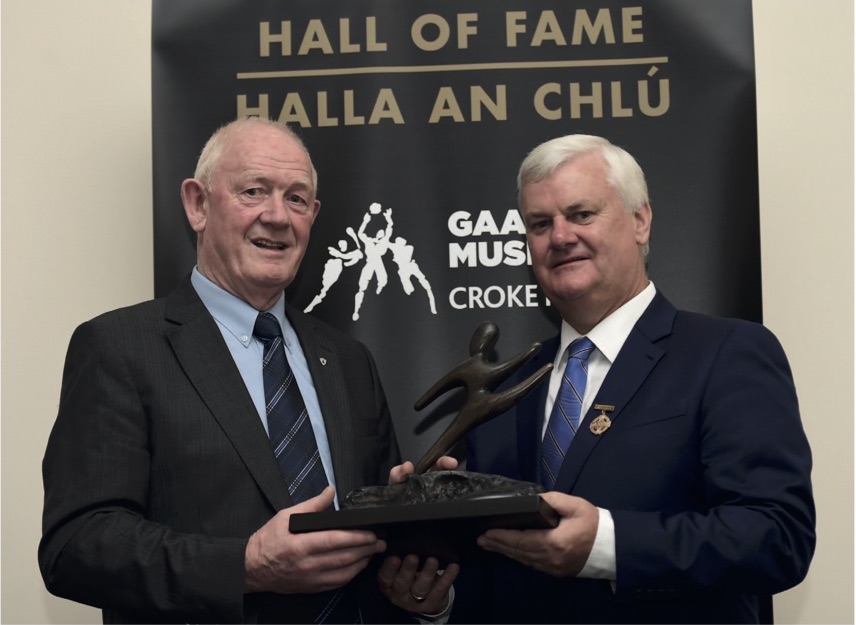
‘John O’Donoghue in the Tipp goal made some great saves in the second-half as well to keep us out. Eventually, I got pulled down going through halfway through the second-half… Paul Lynch buried it in the net and that brought us level.
‘Level game… then they came back at us and it was see-saw hurling, one side to the other… and I got in for a goal with seven or eight minutes left and that put us in front… caught a high ball around the 14 or thereabouts and got inside John Costigan and palmed it into the net… and was nearly looking John O’Donoghue in the eyes when I put it past him.
‘I scored a good few with my hand when you were allowed to score a goal like that, and usually got close to the ’keepers.
‘And Jack Berry got another goal shortly after… we got a couple of points, and we were eight up. Tipp came back and got a couple of goals at the end.
‘We had missed good goal chances and I think we had a goal disallowed in the first-half… and one brought back for a free in the second-half. Even though Tipperary were the better team in the first-half we could have been much closer to them. The goals we got, we got out of nothing, but we should have got better goals.
‘Paul Lynch went centre-forward and he had cancelled out Mick Roche to a certain extent. Lynch was an artist on the overhead strike and the first time strike, and Roche was still covering deep… and Lynch was there moving good ball to us inside. That made a big difference in the second-half. It helped to take Mick Roche out of the game… any ball he did get he was getting near his own full-back line and was not getting it in an attacking half-back position.
‘Alongside Lynch, on the wings, John Quigley who had replaced the injured Seamus ‘Shanks’ Whelan at half-time and Christy Jacob were causing Tipp some trouble with their direct play. Inside, in the corners, Jimmy O’Brien was a real livewire and Jack Berry was strong and a brilliant opportunist.
‘But it was still hard to believe how the game had turned around!
‘We gave away two goals… they got one from a free… and those two goals in the last minute came about because we had slacked off a certain amount. The first was from Sean McLoughlin, and from a free Babs got their second.
‘There was no clock over the Canal End back then… you were waiting for the final whistle and thinking how long was left in the match… eight points up we thought it was done and dusted.
‘When the clock did go up at the Canal End, years later, it was no use to us anyhow because you could never work out how much time exactly was left. You’d still be guessing.
‘We were glad to hear that whistle from John Dowling. Anything could have happened after their two goals.’
For more great sporting memoirs visit www.herobooks.digital
